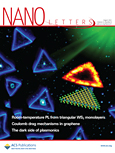 Rakesh Kumar, a professor at the George Washington University, has retracted a paper in the Journal of Biological Chemistry (JBC) that was recently questioned on PubPeer.
Rakesh Kumar, a professor at the George Washington University, has retracted a paper in the Journal of Biological Chemistry (JBC) that was recently questioned on PubPeer.
Here are Peer1’s comments from PubPeer about the paper, “Mechanism of MTA1 Protein Overexpression-linked Invasion:” Continue reading Author with six recent corrections retracts JBC paper questioned on PubPeer








